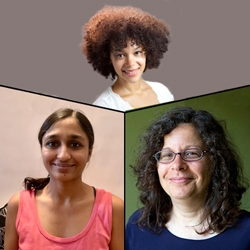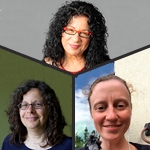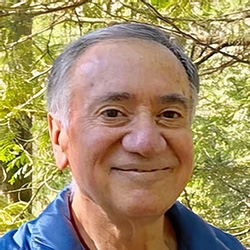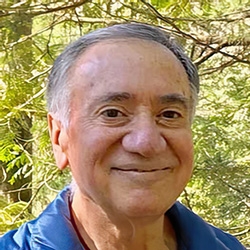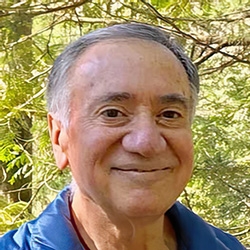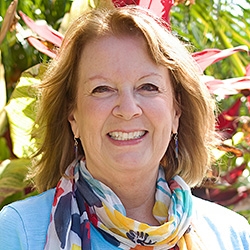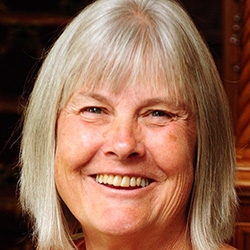

Search Results: integrity
-
Our "felt-sense" can provide crucial information about our experience and our lives. It can also help us integrate and retain information. This can also bring greater access to internal resources, choice, open heartedness, collaboration and creative solutions. From there, profound insight and transformation can follow. Here's how we can harness that...
-
- Explore the complexities of how we can care for all of life using NVC
- See the role that power plays in relation to observations, feelings, needs, and requests
- Learn how to support people from many backgrounds in being able to apply NVC
- Discern how to engage with these vast topics as we learn and share NVC
-
- Wish you knew how to align your organization with its purpose and values?
- Want to increase your capacity to live in integrity with your values, too?
- Concerned about the level of engagement within your organization?
- Yearn to connect to a sense of meaning in your life during this time of global crises?
- Long to discover what is yours to do – and wish you knew how to leverage the resources you have in response to what is needed?
-
Self-compassion is essential for healing trauma and restoring your wholeness. It is also an antidote to reactivity and separation, allowing presence to emerge.
In developing presence, you can become what the world needs most in these times of intensity and chaos. This work can strengthen your skills to be more fully in relationship with all that life offers while allowing your heart to be moved by what is alive in you and with others
-
Living Compassion in an Ever-Changing World is the last course that Robert Gonzales offered before his passing in November of 2021. It is an intermediate course whose purpose is to deepen our conscious connection to our own vital life force, to develop skills that support inner healing, and to grow and strengthen daily practices that allow us to truly live life to the fullest.
-
Ever since the Women's Movement of the 60s and 70s, we have known that "the personal is the political" – that individual suffering and challenges often have their source in the social systems within which we live.
How can we mobilize this insight in support of our own and others' healing?
Join Miki Kashtan for this course designed to shed light on how the social context into which we are born affects our experience, and what we can do about it at the individual level within the paradigm of nonviolence.
-
Would you like to learn how to:
- Use line and color to deeply connect with the feelings and needs that are alive for you ?
- Find a way forward that comes from your creative self ?
- Meet your creative self, even if you have never had the pleasure of meeting it before ?
Come join Olga Nguyen for Neuroart / Visual NVC– even if you have never drawn or painted before, and even if you are a professional in the midst of a creative block!
-
- Gain a deeper understanding of trauma through the lens of NVC
- Learn how to connect with ALL needs, even when we’ve been taught to suppress some of them
- Grow capacity to creatively move towards our deepest longings interdependently
- Discover how you can call people back to life when they are in the thick of patterned behavior
-
If we are to transform the existing social order, and shift to a mode of liberation for all, we'll need to look at our own participation in it. This includes how much we are able to focus on keeping our hearts open; speak to impact without attributing intention; and retain a humility that includes our systemic context. Read on for "how to" when we are in a position of less power.
-
What do you experience when you give up on needs that are important to you, and are coerced into doing something you didn’t want to do? And why is it hard to make requests? Listen in and learn more.
-
Total inclusion is impossible: inclusion of all can often lead to exclusion of those who can't bear the behaviors of some. Many groups flounder and disintegrate because of too much inclusion. Limited resources and capacities may make it necessary to exclude. Keeping more coherent shared values and strategies may be another reason to place membership conditions so that what appears to be exclusion may give movements a chance to expand.
-
Discover how Nonviolent Communication helped integrate spirituality into daily life and work.
-
- Connect the dots between NVC basic practices and the deeper "why" behind them
- Discover how NVC can support us in bringing tenderness to all of humanity
- Learn how to tie the NVC approach to liberation and vision
- Explore the many ways the tools of NVC support the path of liberation!
-
-
Trainer Tip: What do you value the most? Take a look at your actions and notice the values that your actions demonstrate (not what you want them to show, but what they do show), and see if they are in alignment. Where there is a gap take steps to create actions that are in alignment with your values.
-
Goals and purposes can arise from intentions, but are different. Intentions arise from what's authentic, alive and aligned for you. Intentions can give you a sense of expansion, ease, and flow -- and are an essential part of any change process. Clear intentions can support decisions, management of resources, plus it can direct your attention effectively and with integrity. Read on for practices to find and implement your intention.
-
Join Eric Bowers in transforming past relationship pain, coming alive in community and creating thriving relationships. This 12 session Telecourse recording brings together Eric's passions for Nonviolent Communication, Attachment Theory and Interpersonal Neurobiology.
-
In our internal conversations, some voices dominate others, which can leave us feeling fragmented or overwhelmed. But when we dive beneath the surface and really listen to our many parts, we connect vulnerably to our full humanity.
-
You've probably witnessed and participated in role plays that were powerful tools for inspiration, integration, or healing. You've likely also been in contexts where role plays fell flat, leaving people frustrated, confused, or disengaged. If you're sharing NVC with others – or are envisioning yourself going there in the future – you'll want to take this class, where the focus is on how to increase the chances of having role plays that serve a clear purpose, engage an entire group, and support the deepest learning possible for all.
-
You've probably witnessed and participated in role plays that were powerful tools for inspiration, integration, or healing. You've likely also been in contexts where role plays fell flat, leaving people frustrated, confused, or disengaged. If you're sharing NVC with others – or are envisioning yourself going there in the future – you'll want to take this class, where the focus is on how to increase the chances of having role plays that serve a clear purpose, engage an entire group, and support the deepest learning possible for all.

Quick Links
Subscription Preferences
Stay In Touch!
Looking for ways to keep up with NVC Academy news, get special offers, free resources, or words of inspiration? Here are five ways to stay engaged:


